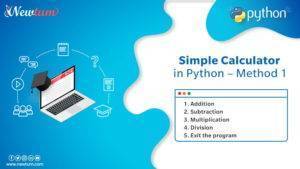In today’s blog, we’ll understand the concept of the Factorial of a number in C# programing language. How to find the factorial of a number in C# with example.
What is a Factorial Program in C# with an example?
A factorial program in C# computes the product of all positive integers up to a specified number. In the example below, a recursive method, `CalculateFactorial`, is employed to find the factorial of a given number. The program prompts the user to input a number, calculates its factorial, and then displays the result. This approach reflects the elegant use of recursion to solve mathematical problems in C#.
Example:
using System;
public class FactorialExample
{
public static void Main()
{
Console.Write("Enter a number: ");
int number = Convert.ToInt32(Console.ReadLine());
long factorial = CalculateFactorial(number);
Console.WriteLine($"Factorial of {number} is: {factorial}");
}
public static long CalculateFactorial(int n)
{
return (n == 0 || n == 1) ? 1 : n * CalculateFactorial(n - 1);
}
}
Learn more about the Factorial of a number in PHP today!
Factorial of a number in C#
// Factorial of a number in C#
using System;
public class factorialEx {
public static void Main() {
int i,f=1,n;
Console.Write("Input the number : ");
n= Convert.ToInt32(Console.ReadLine());
for(i=1;i<=n;i++)
f=f*i;
Console.Write("The Factorial of {0} is: {1}\n",n,f);
}
}
Explanation of the code:
C# code calculates the factorial of a user-inputted number. Here’s an explanation of its components:
1. Variable Declaration:
- `i`: Used as a loop variable for iteration.
- `f`: Holds the factorial value, initialized to 1.
- `n`: Accepts the user input for which the factorial is calculated.
2. User Input: The program prompts the user to input a number (`n`), which is read using `Console.ReadLine()` and converted to an integer.
3. For Loop: A `for` loop is employed to iterate from 1 to the user-inputted number (`n`). Inside the loop, the factorial (`f`) is calculated by multiplying the current value of `f` by the loop variable (`i`).
Output:
Input the number : 5
The Factorial of 5 is: 120Elevate Your PHP Skills with a Treasure Trove of Fibonacci Series in PHP!
Why Factorial in C#?
Factorials play a crucial role in programming, and harnessing their power in C# brings several advantages to the table. In programming, factorials are extensively used for solving combinatorial problems, permutations, and complex mathematical calculations. C# stands out as an excellent choice for implementing factorial calculations due to its robust features and versatile capabilities.
A. Application of Factorials in Programming:
Factorials find applications in various programming scenarios, including algorithms for calculating permutations, and combinations, and solving mathematical problems. They are fundamental in scenarios where the arrangement of elements or counting possibilities is essential, making them a valuable tool in the programmer’s toolkit.
B. Advantages of Using C# for Factorial Calculations:
C# offers a powerful and expressive environment for implementing factorial programs. Its clean syntax, extensive libraries, and support for both iterative and recursive programming approaches make it an ideal language for handling factorial calculations efficiently. C# strikes a balance between simplicity and functionality, providing developers with a versatile platform for mathematical computations.
Real-Life Applications
A. Practical Uses of Factorials in Various Domains:
Factorials find diverse applications across various domains, showcasing their versatility and importance in real-world scenarios.
1. Combinatorial Analysis: Factorials are integral in combinatorial mathematics, aiding in the determination of permutations and combinations. They play a crucial role in scenarios where the arrangement or selection of elements is fundamental.
2. Probability Calculations: In probability theory, factorials are employed to calculate the total number of favorable outcomes, especially in situations where the order of events is significant.
3. Statistics: Factorials contribute to statistical computations, particularly in probability distribution calculations involving permutations and combinations.
4. Algorithm Optimization: In computer science, factorials are utilized in algorithm optimization, enhancing the efficiency of recursive or dynamic programming techniques.
5. Genetics and Biology: Factorials are employed in genetics to model and predict genetic permutations and combinations, aiding in understanding and forecasting genetic outcomes.
6. Queueing Theory: Within queueing theory, a field of study involving the analysis of systems with queues, factorials are used to predict wait times and optimize service processes.
7. Engineering Design: In engineering design, factorials play a crucial role, especially when considering arrangements or combinations of elements in the design process.
B. Importance in Mathematical and Algorithmic Scenarios:
Factorials hold significant importance in mathematical and algorithmic contexts, contributing to the foundation of various mathematical concepts and problem-solving approaches.
1. Algorithmic Understanding: Factorials provide a practical illustration of algorithmic concepts, helping developers deepen their understanding of algorithm design and recursion.
2. Mathematical Simplicity: The simplicity of factorials aligns seamlessly with mathematical patterns, and their integration into algorithms enhances code readability and simplicity.
3. Educational Tool: Factorials serve as an educational tool, allowing learners to gain hands-on experience in writing algorithms, problem-solving, and understanding fundamental programming concepts.
4. Recursion Mastery: Programming factorials provides an opportunity to master the concept of recursion, a powerful programming technique.
5. Pattern Recognition: Working with factorials enhances developers’ pattern recognition abilities, a crucial skill for tackling diverse programming challenges.
6. Code Optimization Challenges: Factorials present opportunities for code optimization challenges, allowing developers to experiment with different algorithms and techniques.
7. Real-World Applications: Beyond educational aspects, factorials have applications in real-world scenarios, modeling growth patterns in biological systems, influencing financial calculations, and forming the basis for search and optimization algorithms.
Factorials’ practical applications in various domains and their significance in mathematical and algorithmic contexts enhance their value as a fundamental concept in programming and problem-solving.
We hope you are able to understand the concept of the ‘Factorial of a number in C#’ with Newtum, For more informative blogs and coding courses check out our website Newtum.
Once you learn the concept you can execute code on the Newtum C# online compiler. Learn, experiment, and execute your code effortlessly with Newtum.
Factorial of number in C# – FAQ
A: A factorial is the product of all positive integers up to a given number. In C#, factorials are crucial for solving combinatorial problems and mathematical calculations, providing a foundation for algorithmic understanding.
A: Recursion in C# involves a method calling itself. For factorials, a recursive function multiplies a number by the factorial of the preceding number, elegantly expressing the mathematical definition of factorials.
A: Yes, an iterative approach in C# involves using loops to calculate factorials. It’s a straightforward method where a loop iterates through the numbers, continuously multiplying to find the factorial.
A: C# provides a clean syntax, extensive libraries, and support for both iterative and recursive programming. Its versatility makes it an ideal language for handling factorial calculations efficiently.
A: Factorials find applications in combinatorial analysis, probability calculations, statistics, and algorithm optimization. C# enhances these applications with its robust features, making it a valuable tool for real-world problem-solving.



